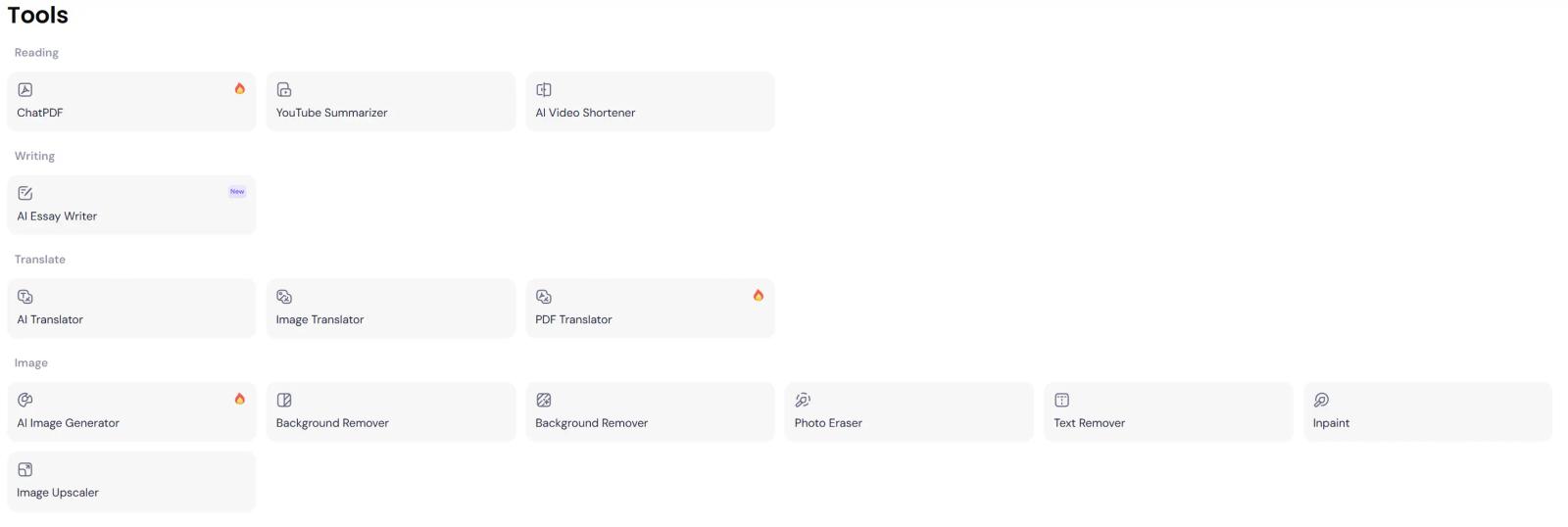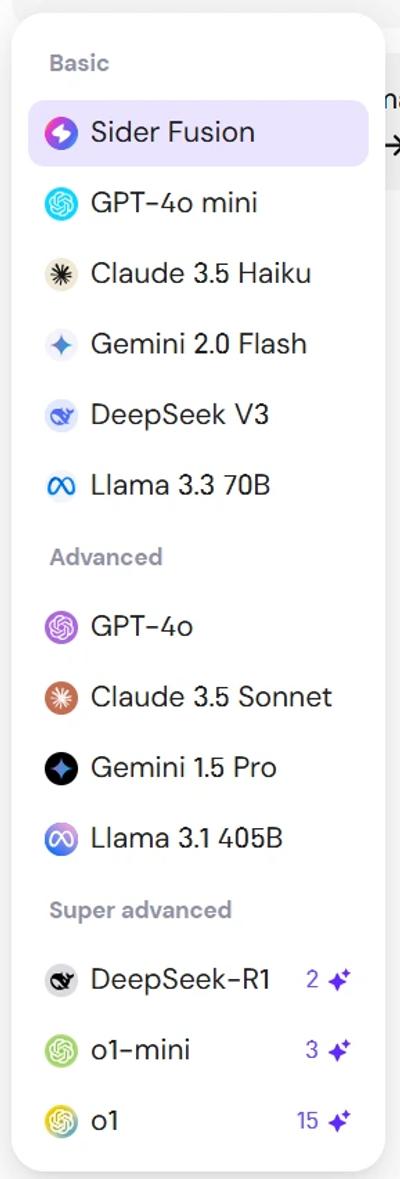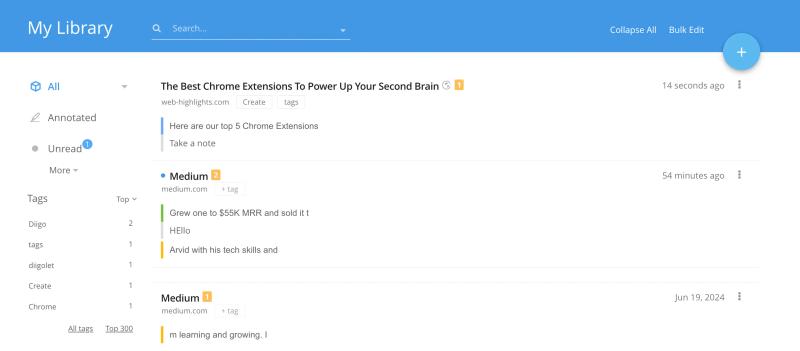Compare Sider and Diigo: Which Extension is the Best?
Diigo is a handy tool for bookmarking, highlighting, and annotating web pages. It has many features, but its old design and limited highlight colors might make it less appealing. | ||
| Key Features A summary of the most important features offered by each extension. |
|
|
| Our Rating Tooltivity's expert review score for each extension, based on hands-on testing and research. | 8.7 Winner in this category | 7.8 |
| Total users Total active users across all major browsers: Chrome, Edge, Firefox, and Safari. | 8,069,111 Winner in this category | 200,000 |
| Total ratings Total number of user ratings received across all supported browsers. | 118,455 Winner in this category | 2,324 |
| Average rating Average user rating across all browsers, calculated from available store ratings. | 4.9 ⭐ Winner in this category | 4.6 ⭐ |
| Entry Level Price The minimum price required to start using the extension. "Free" means a free tier is available. | Free | Free |
| Chrome User rating and stats for the extension on Chrome browser. | 4.9 4.89 Average Chrome Web Store rating from the last 100 reviews 5.0M+Users Winner in this category | 4.6 3.53 Average Chrome Web Store rating from the last 100 reviews 200.0K+Users |
| Edge User rating and stats for the extension on Edge browser. | 4.8 4.24 Average Microsoft Edge Store rating from the last 100 reviews 3.1M+Users Winner in this category | - |
| Firefox User rating and stats for the extension on Firefox browser. | - | - |
| Safari User rating and stats for the extension on Safari browser. | - | - |
| Features Tooltivity's expert score for the 'Features' aspect of each extension. | 9.5 Sider offers a comprehensive range of functions and is designed to provide a solution for every possible use of AI. From AI writing assistance to PDF analysis, for example, it covers all areas for every blogger. Creatives also get their money's worth here, whether creating images from text or editing photos, Sider offers these functions in just one tool and integrates the functions of other providers into your one tool.  The number of integrated AI models, such as GPT-4o, Claude, or Gemini, also stands out. This ensures that users have access to the latest technology.  In summary, Sider offers almost all of the current possibilities of AI in one tool. Winner in this category | 8.5 Diigo offers basic features for a highlighter and bookmarking tool. It works well and we were able to highlight most websites and they were recreated when revisiting them. The highlighter popup makes it easy to highlight text offering 4 colors. It looks like this:  We would have wished to have more color options. Also, note-taking and the tagging functionality are working, but its design does not look appealing.  The dashboard where your highlights are stored works well and gives you an overview of all your highlights.  |
| Performance Tooltivity's expert score for the 'Performance' aspect of each extension. | 9.2 Sider generally performs well in the test with fast response times and reliable functions. The integration of multiple AI models ensures that users receive accurate and relevant information. However, there can be occasional delays, especially when using advanced features or at peak times. Continuous updates and optimizations could further improve performance. Winner in this category | 8.0 Diigo performs well in terms of highlighting and syncing across devices. The fact that highlights are always synchronized can cause some loading delays. It's not as fast as other highlighters that use an offline-first approach, but it works reasonably well. However, the unreliable link creation feature and the simple sidebar outliner design need improvement. |
| Design Tooltivity's expert score for the 'Design' aspect of each extension. | 8.5 The design of Sider is very user-friendly, and the interface is quite clear, so it's easy to find anything. The sidebar is great because you can access features without leaving the page. However, it might feel cluttered for some people as there are so many options. A sleeker design could improve the user experience. Winner in this category | 7.0 The design fulfills its functionality. The design of Diigo is outdated and could use a modern refresh. The lack of a nice overview of all your highlights on the page itself means you have to open the dashboard on diigo.com instead. The dashboard on diigo.com is okay, but other highlighters like Web Highlights have a much nicer user interface. |
| Value for Money Tooltivity's expert score for the 'Value for Money' aspect of each extension. | 7.8 While Sider offers a free version with limited requirements, the premium plans can be expensive for casual users. While the feature set justifies the cost for power users, those who only need basic features may find it expensive. The availability of different pricing tiers offers flexibility, but an intermediate solution with a cheaper option could appeal to a wider audience. | 8.0 The free version of Diigo offers basic features and is fine for most users. The paid plans are reasonably priced and similar to other highlighters. However, we think other highlighters offer more value for the same price. Winner in this category |
| Ease of Use Tooltivity's expert score for the 'Ease of Use' aspect of each extension. | 9.0 In our tests, Sider was easy to use without having to learn how to use it. The tooltips and instructions help you get started right away. It works well in our tests with popular browsers such as Chrome and Edge, which are quick to install and use. However, if you want to delve into the advanced functions, it can take a while to get to grips with everything. Basic users might be a little overwhelmed here. Winner in this category | 7.8 Diigo is fairly easy to use, but the sidebar outliner takes some time to get used to. You can't see all your highlights on the page itself, so you have to go to the dashboard on diigo.com. We wish there was a sidebar to quickly access all our highlighted pages, like in the Web Highlights extension. |
| Security & Privacy Tooltivity's expert score for the 'Security & Privacy' aspect of each extension. | 8.0 Sider stores the data on Amazon's US servers. The data protection guidelines are transparent and users have control over their data. However, usage data is collected for analysis purposes, which not every user will find acceptable. The assurance that data is never passed on and no spam messages are sent is a positive aspect. Winner in this category | 7.5 Diigo takes reasonable steps to protect user data. However, since you need an account and your data is stored in their database, absolute protection can't be guaranteed. We think a highlighter should work without needing to sign up, but this feature is missing in Diigo. |
| Conclusion A summary of our findings and final thoughts for each extension. | Sider is an AI tool that can significantly increase user productivity across multiple platforms. The high number of features, from writing assistance to image editing, makes it a versatile choice for truly anyone. Although it excels in many areas, there is still room for improvement. In particular, the sometimes high prices will put normal users off. Overall, Sider is a valuable tool for anyone who wants to combine almost all the possibilities of AI in one tool and is willing to pay for it. | Diigo is a handy tool for collecting stuff from the web, like bookmarks, highlights, and notes.
|
| Our Recommendation | In our comparison between Sider and Diigo, Sider came out on top, scoring 8.7. Sider is the most widely used, with over 8 million users and 118k+ reviews—and it also delivered the strongest performance in our tests. We rate Sider and Diigo lower than users do. Notably, Sider has the highest user rating in the Chrome Web Store at 4.86, which is even higher than our rating of 8.7. There are some noticeable differences between these extensions, so it's worth considering your priorities and the details below.
If you want a quick recommendation, Sider is our top pick. But as always, the best choice depends on what matters most to you. | |

